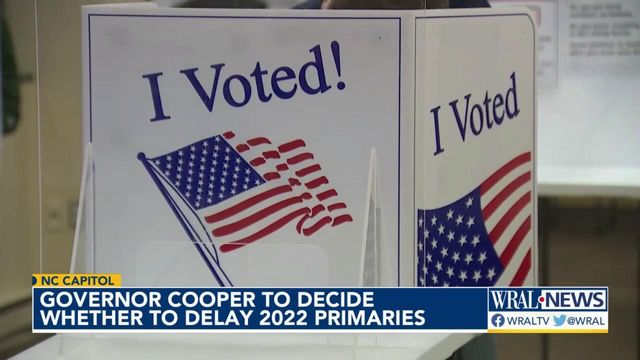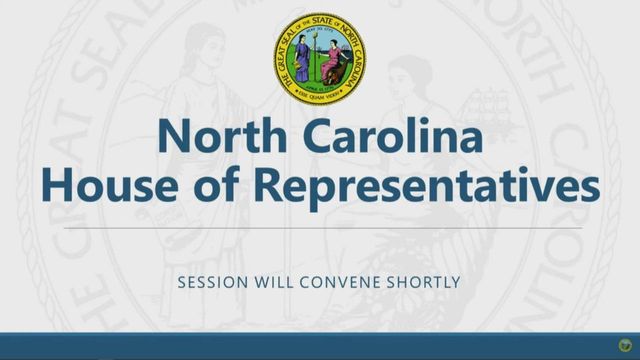NC Republicans vote to delay 2022 primary elections
Would be second move for state primaries as courts consider gerrymandering lawsuits, but the change isn't final yet.
Posted — UpdatedGov. Roy Cooper has expressed concern with the bill and may veto it. And with Democrats already voting against the measure en masse, he'd likely be able to sustain that veto, rendering the planned changes moot.
But for now House Bill 605 lays out this proposed schedule for the primaries:
- Candidate filing would run from March 24 to April 1.
- The primaries would be June 7.
If Cooper vetoes the bill, and if the veto is sustained, the primaries would go back to May 17.
The idea behind the delay is to leave more time for an ongoing court fight over North Carolina's congressional, state House and state Senate election districts.
State law requires the court to give the General Assembly at least 14 days to redraw maps if the court finds an illegal gerrymander, creating a potential time crunch.
Sen. Ralph Hise, R-Mitchell, who is co-chairman of the Senate's Redistricting and Elections Committee, said Wednesday that the legislature also needed to tweak schedule language on municipal elections, many of which were pushed last year into this year because of delays in U.S. Census data releases needed to redraw local districts.
The bill, "allows all that to settle out and gives voters time to understand who their candidates are and what the districts are before they vote in the primaries," Hise said.
The bill would also impact runoff election dates in races where a candidate doesn't get 30 percent of the primary vote, although there was confusion Wednesday about the schedule.
The State Board of Elections said that, if needed, any runoffs would be held Aug. 16 under the bill if any federal races require a runoff. Runoffs would be held July 26 if there aren't any federal runoffs. That's to comply with a federal law requiring extra time between the primary and runoff in congressional elections.
Some Republicans described the bill as a precautionary measure meant to keep elections moving on an orderly schedule.
Reives also encouraged Republicans to pick another date for the primaries, because June 7 falls within the last week of school for most systems. Since many schools are election sites, the confluence might cause problems, Reives said.
When the school issue came up in a Senate committee earlier in the day, Sen. Warren Daniel, a Burke County Republican who co-chairs the Senate Redistricting and Elections Committee, said he believed it was the first time anyone had brought it up.
Cooper said Wednesday morning that he'd need to see the bill's final text before deciding on a veto.
"It's up to the state Supreme Court to decide whether [Republican maps are] constitutional, and they will control the timeline and the election," the governor said. "So I don't think the legislature should butt in and do that. And we need to give the court time to work and do its job."
The vote in the Senate was 26-17 with Republicans voting for the bill and Democrats against. The vote in the House was 69-50, also a party-line vote.
If Cooper vetoes the bill it will take a three-fifths vote of members present and voting to overturn that veto. That would be 72 votes in the 120-member House, if all members are present, and 30 votes in the 50-member Senate. At least five Democrats—two in the Senate and three in the House—would have to go against the governor for the GOP majority to overturn the veto, assuming all are present for the votes.
Cooper hasn't had a veto overturned since Republicans lost their veto-proof super majorities in the 2018 elections.
Five Senate Democrats missed Wednesday's vote, as did two Republicans.
Related Topics
• Credits
Copyright 2024 by Capitol Broadcasting Company. All rights reserved. This material may not be published, broadcast, rewritten or redistributed.






